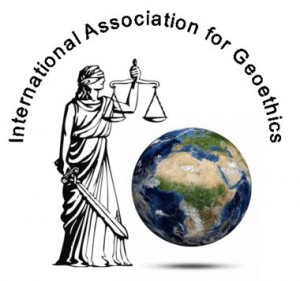
After a great number of scientific studies, it has been globally recognized that Climate Change and its effects are real and serious, and that it is crucial to reach global agreements, developing and implementing concrete and effective actions to minimize the most critical impacts on people.
Geoethics deals with the way of human thinking and acting in relation to the significance of the Earth as a system and as a model. Abiotic nature has its own dynamic evolution and its regularities and laws need to be known and understood in order to improve any forecasting and mitigation of important catastrophes and climate changes. For these reasons, we congratulate global leaders for taking a historic step in Paris to combat Climate Change, and also applaud the recognition of the need to safeguard the integrity and conditions of our atmosphere, oceans and, in general, the whole planet for our future generations.
Thus, in the framework of our interdisciplinary links, IAGETH supports the content and spirit of cooperation envisioned in the Paris Agreement. It is our ethical duty to provide the scientific grounds and warnings about all societal and ethical aspects which are involved in the connections between Nature with human actions and activities.
We realize the Paris Agreement is just a first step, but it is the needed beginning of a consensual understanding of the main issues, paving the way for further specific actions. IAGETH urges its members and call the geoscientific community to help the public to better understand the Paris Agreement.
- The International Association for Geoethics (IAGETH) is the only organization, linking geosciences and ethics, which is officially affiliated to two ICSU GeoUnions: the IUGS (International Union of Geological Sciences) and the IUGG (International Union of Geodesy and Geophysics).
Prof. Jesús Martínez-Frías,
President, IAGETH
Download the IAGETH Statement (pdf file).
Arabic version – Thanks to Prof. Saad El Ebaidi
Portuguese Version – Thanks to Profs. José Carlos Kullberg and Lopo Vasconcelos
Russian version – Thanks to Dr. Nataliya Nikitina!
Spanish Version – Thanks to Prof. Jesús Martínez-Frías

